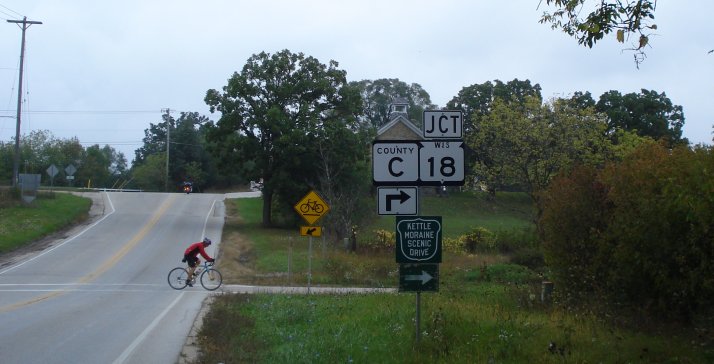My first encounter with climate change came when I was a kid in Wisconsin. We talked a lot about the Ice Ages and went on field trips to the nearby Kettle-Moraine State forest, where you could see the physical evidence of the ice age. The last Ice Age, in fact, is named the Wisconsin. It ended only 10,000 years ago. Until then, my native state was covered with glaciers. Then it got warmer and Wisconsin became the green and pleasant place it is, at least part of the year.

The Ice Age created most of our lakes and gentle hills. Glaciers did not cover Southwestern Wisconsin with its long hills and coolies. A coolie is a narrow valley formed by the scouring of melt water from the glaciers. Grand Coolie in Washington is a big example, formed when melt water broke through an ice dam, flushing everything before it from what is now Idaho all the way to the Pacific Ocean. Nothing like that happened in recorded human history.
Human history is a short time. We have just about 5000 years of history, i.e. when records were kept and there was no history in this sense in much of the world until much more recently. This means that our recorded human experience with climate change is very short and we recorded nothing as profoundly important as the rapid global warming at the end of the last Ice Age. But lots happened.
The Sumerian civilization, the people who first invented writing, were probably wiped out by a prolonged drought that lasted a couple hundred years. The Egyptians were driven into the Nile Valley by the encroaching Sahara desert. Mycenaean Greek & Hittite civilizations were destroyed at least partially by “climate refugees,” who moved in from places suffering rapid changes. The Philistines of Bible fame were probably among them.
On the plus side, Roman civilization flourished during the first and second centuries because of a generally warmer climate that pushed the boundaries of Mediterranean style agriculture and lifestyle into Germany and what is now the UK. This happy time ended in the fourth century and the sixth century had lots of especially nasty cool weather that brought with it famine and sickness.
We enjoyed another warm period in the eleventh and twelfth centuries. This was the period of the high Gothic, when European civilization flowered. It was significantly warmer in Europe, producing ample harvest and general prosperity. This ended with the onset of the little ice age. Frosts came earlier and lingered longer.People starved. The Black Death came around this time. While Black Death was not caused by climate change, the more desperate conditions caused by the cooling exacerbated it and hastened the spread.
None of these fluctuations in climate were evidently the result of human activity, but they had profound effects. I cannot point to a situation where climate was the only cause in the flowering or destruction of a civilization, but it was a big contributor to the rise and fall of Rome and the civilization of the high middle ages, mentioned above. There is an interesting speculation about the spread of the Indo-European language group found from India all the way to Ireland. Nobody has been able to find the original “homeland.” The closest many scientist come is Anatolia near the Black Sea. Some have speculated that it is UNDER the Black Sea. In prehistoric times, the theory goes, the Black Sea was much smaller and a fresh water lake divided from the salt sea of the Mediterranean by a narrow land bridge in what is today Dardanelles and the Bosporus. This eroded through, quickly filling the basin with salt water and pushing people up and out in all directions. The relatively rapid desertification of North Africa and the Middle East pushed people into river valleys (the Nile, Tigris and Euphrates) and in that respect contributed to the rise of the first civilizations. It is also important to recall that no climate change in recorded history has been as extreme as the end of the last ice age.
I don’t know if history should be a comfort or a terror when confronting today’s climate change. The earth has been much colder than it is today and much warmer than it will be in the next century with even the direst predictions. However, civilizations have risen and fallen on the backs of changes of smaller magnitude than we may soon experience. The difference is that changes in the past came as a surprise. People in the ancient Middle East may have noticed that game was becoming scarcer and the land drier, but given their short life spans and lack of good record keeping, it fell more into the realm of legend. We will be able to make increasingly accurate estimates of what is likely to happen. Nevertheless, we will be faced with the same choices our ancestors had. We can adapt in place or move.
Human civilization – ALL human civilization – flowered in the Holocene. This was an usually tranquil time in geological history. Some people have advocated that we call our most recent epoch the Anthropocene because it is so influenced by human activity. Certainly future centuries will merit that moniker. We have choices to make. We can look back on our history and earth history and see that it has been a series of upheavals and we have adapted to each of them. This tells us we can adapt to the next and we should do it sooner rather than later.
